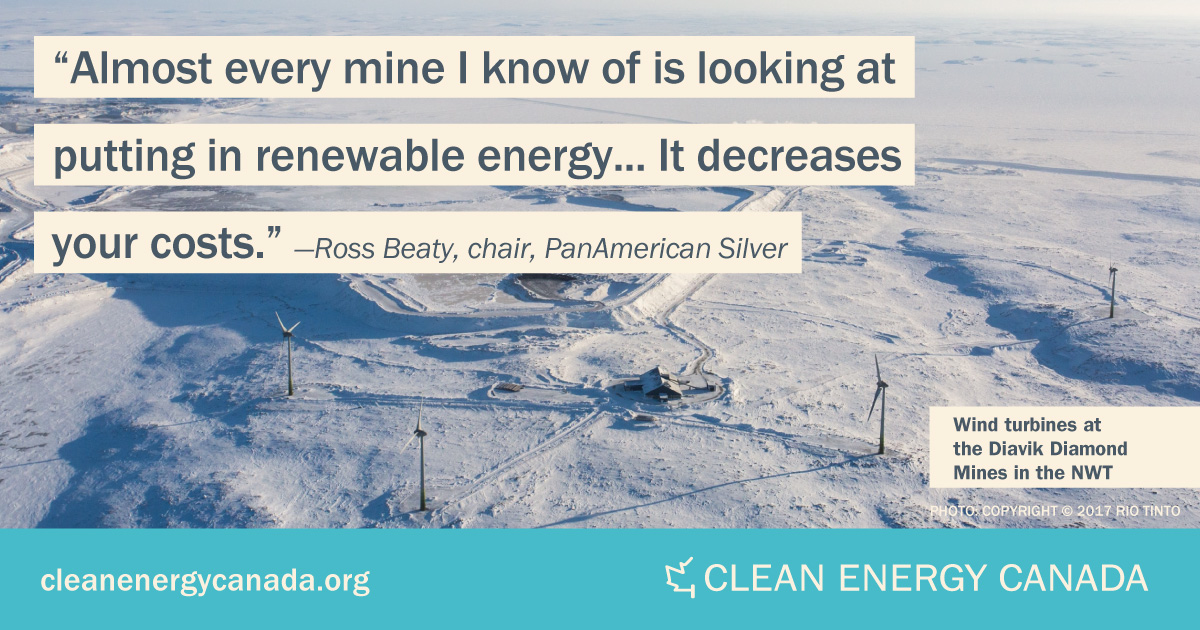Yesterday, Clean Energy Canada released a study supporting more metal mining in Canada to support clean energy development. While pointing out that the Canadian mining industry falls well short of social and ecological “responsibility”, the report’s promotion of raw materials extraction is oddly anachronistic. And while some new metal mines may be needed to meet the demand for new clean energy technology, the real need is probably quite limited – and really requires more careful consideration.
The report, Mining for Clean Energy, does acknowledge that metal mining can harm the environment, referencing the Mount Polley disaster and the failure of both industry and government regulators to respond adequately to the dangers it exposed. But to make an honest argument for more mining, the serious environmental and social damage that is normally treated as an “externality” has to be brought into the equation to see if it really can be justified by the benefits, whether in terms of the economy or climate change.
For one thing, the assumption that demand will continue to grow needs to be checked. Efficiency has been increasing dramatically, whether in energy consumption or in the use of materials and metals themselves – doing more with less – partly in response to improved regulation that increasingly makes the costs of environmental safeguards part of the cost of mining. Making carbon emissions part of the cost of energy doesn't just push green energy, it also drive more efficient energy use, decreasing total consumption and the need for ever greater energy generation.
At the same time, there’s no guarantee that the raw materials for the green energy revolution need to come from more mining. The report comments on the potential for recycling the copper in photovoltaic panels – but not the importance of using recycled copper to make them in the first place. It has been said that as communications systems switch to fibre optics, the largest copper deposit in the world is the US telephone system – never mind the millions of tonnes sitting in landfills across the continent. Canada has made amazingly little progress on shifting public policy to support recycling instead of extraction since the 2004 Canary Institute report “Scrap Mining: An Overview of Metal Recycling in Canada”.
Surely the time is right to recognize that while we do still need to mine for new metal to feed the “green economy”, it’s not really a green economy if it depends on greater environmental and social sacrifices instead of alleviating them. Not only does mining need to be properly regulated and restricted, but the subsidies and tax benefits that support mineral exploration and mining need to be shifted to support the re-use, reduction, and recycling of metals. It’s not really that complicated. All that’s missing is the political will.
updated June 29, 2017
